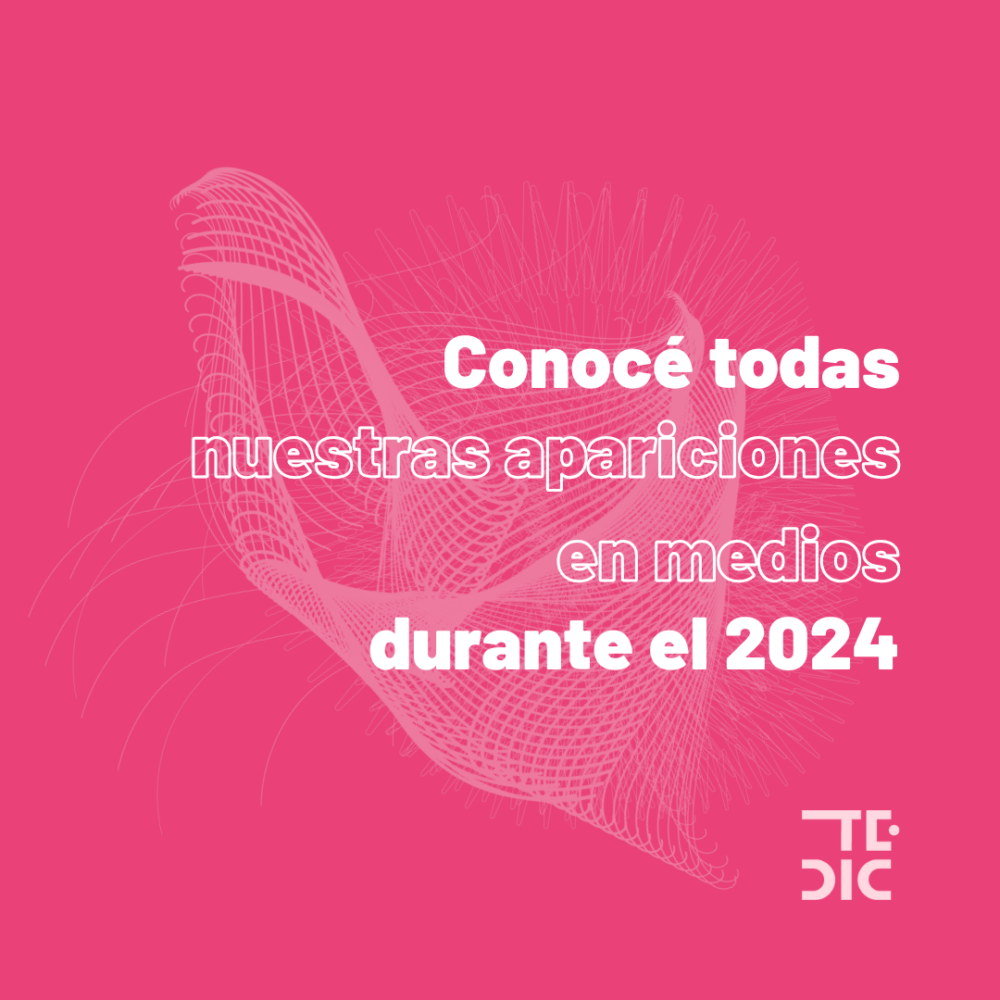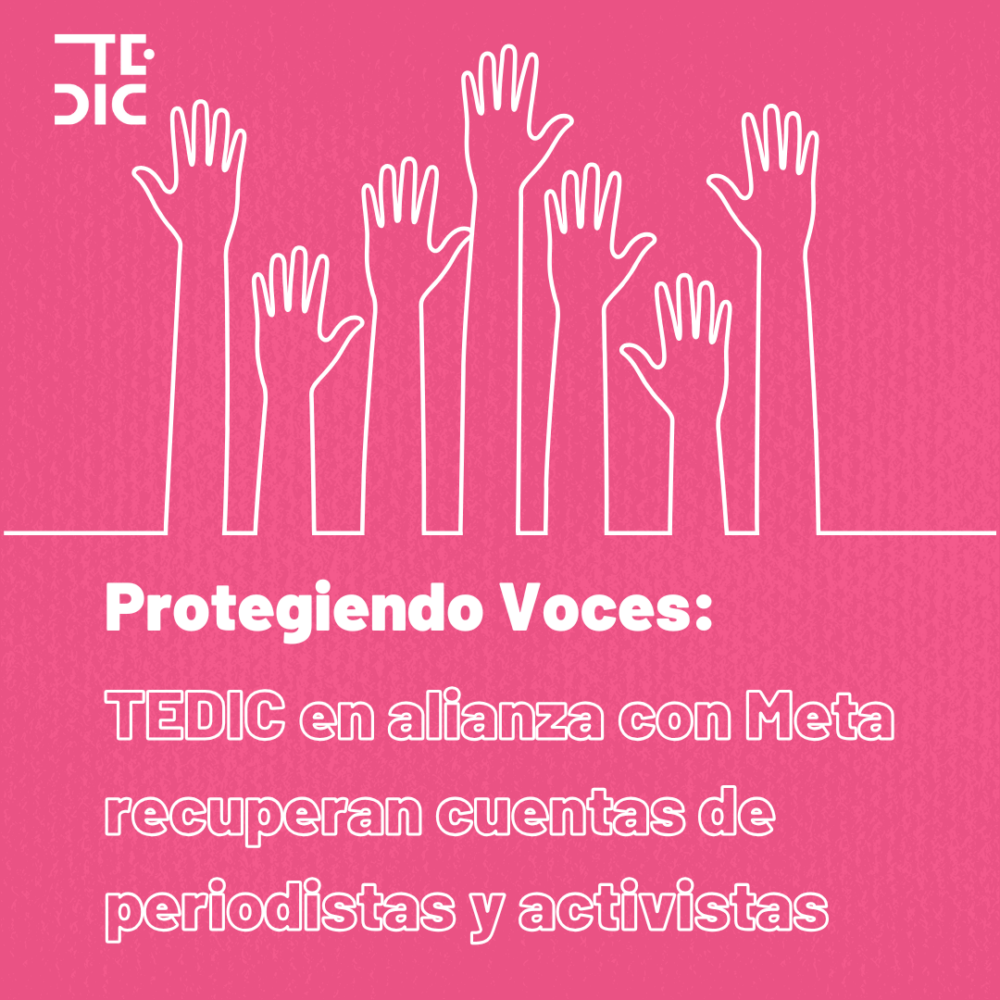
At TEDIC, we reaffirm our commitment to working alongside the press to raise awareness and foster debate on digital rights issues in Paraguay. In 2024, we more than doubled our media appearances compared to the previous year, increasing from 73 to 151 mentions. This achievement was made possible thanks to constant collaboration with journalists and media outlets, who created spaces to discuss issues as relevant to our country as freedom of expression, privacy and surveillance, personal data, democracy, technopolitics, and the impact of technology on gender-related issues.
Key Topics Addressed
Throughout the year, our media appearances focused on some of the most pressing challenges in the digital environment:
Freedom of Expression – 25 Mentions in the Press
In Paraguay, freedom of expression faces significant challenges from various fronts. On one hand, we observed how certain regulations, such as Law 5777/16, have been misused by the judicial system to limit the expression of journalists and activists on matters of public interest. This issue reflects a broader trend where laws, designed to protect specific rights, are being distorted to exert control and censorship.
On the other hand, actions from the government and public institutions have sought to restrict critical voices. Cases of judicial harassment, undue restrictions on access to public information, and legal processes targeting communicators reveal a pattern of censorship that threatens diversity of opinion. Additionally, digital platforms present their own challenges. While they are essential spaces for plurality of voices, their management can contribute to censorship practices or amplify online harassment, disproportionately affecting journalists, activists, and vulnerable communities.
Personal Data Protection – 52 Mentions in the Press
Our advocacy for the enactment of a comprehensive data protection law remained a central focus of our work and gained significant media coverage. This year, along with the Personal Data Coalition, we presented an updated version of the draft law, reaffirming the urgency of having legislation that safeguards privacy in the digital age.
We also launched three campaigns to raise awareness about the importance of protecting our data. One campaign addressed how private sector companies handle personal information, highlighting the risks of opaque practices. Another focused on the use of facial recognition cameras in football stadiums, a topic that has raised concerns about mass surveillance and its impact on fundamental rights.
Our media presence throughout the year was key in highlighting the consequences of not having specific data protection legislation in Paraguay. These include exposing citizens to risks such as misuse of information, lack of control mechanisms, and vulnerability to invasive practices by companies and the state.
Gender and Technology – 27 Mentions in the Press
We achieved significant media coverage that allowed us to shed light on how technology-facilitated gender violence disproportionately affects women. This year, media outlets extensively covered our new research, which analyzes how this form of violence particularly impacts the work of women in politics. The study revealed the specific risks they face and the barriers limiting their full participation in the public sphere.
Our awareness-raising actions, such as participating in marches under the slogan “digital violence is real”, also received media coverage that helped expand the debate. The press highlighted our advocacy on gender and technology during the 54th OAS General Assembly held in Asunción, where we emphasized the need to address this issue from a human rights perspective in international forums.
These media appearances strengthened public discussion on digital violence and underscored the urgency of creating more equitable and safe digital environments for everyone, with a particular focus on its impact on women.
Democracy and Technopolitics – 42 Mentions in the Press
We comprehensively addressed the challenges at the intersection of technology and democracy, with a special focus on elections in Paraguay. With the support of the press, we were able to highlight key issues related to the impact of technology on electoral processes, such as the use of electronic voting machines, misinformation, and political financing.
The implementation of electronic voting machines during the elections continued to be one of the most controversial topics. Through events and analyses widely disseminated in the media, we exposed the limitations of these systems, including the lack of complete audits, the need for greater transparency in technological processes, and the risks of relying on electronic infrastructure without sufficient security guarantees.
Electoral misinformation was also a central axis of our media agenda. We discussed how disinformation campaigns affect the integrity of the electoral process and emphasized the importance of effective strategies to combat them, from platform regulation to digital literacy. In the area of political financing, we achieved media coverage of our denunciations regarding the opacity in the use of digital resources for political campaigns, an area where monitoring remains insufficient.
Through media interventions and publications, we drew attention to the need to strengthen oversight in the digital realm, a critical gap in current reforms. The press also widely covered our events aimed at fostering informed debate on these topics. Notable among them was a course on analyzing the electoral reform proposed by the TSJE, where we trained citizens on the proposed changes and their technological implications.
A Collaboration That Amplifies Our Reach
This year, the media outlets that most frequently covered our initiatives were Última Hora, Diario HOY, ABC, and RDN, each with 8 mentions. We also achieved significant reach through Canal PRO and Made in Paraguay, with 7 mentions each, and outlets like 1000 Noticias. Thanks to this diversity of platforms, we ensured that our proposals reached various audiences, from traditional audiences to those more active in digital spaces.
Through interviews, reports, and event coverage, we were able to generate informed and diverse debate on digital rights, strengthening the relationship between civil society, the press, and citizens.
Looking Ahead
This joint work with the press shows us that building an informed and participatory society is possible when there are spaces for dialogue and reflection. At TEDIC, we will continue collaborating with journalists and communicators to keep these issues at the center of public debate and ensure that decisions related to technology and human rights are made based on evidence and critical analysis.
We thank the media outlets that supported us in 2024 and extend an invitation to continue working together. Strengthening digital rights is a collective task, and only through the active participation of all parties can we move towards a more just, secure, and inclusive digital environment.


 Defending those who defend us
Defending those who defend us